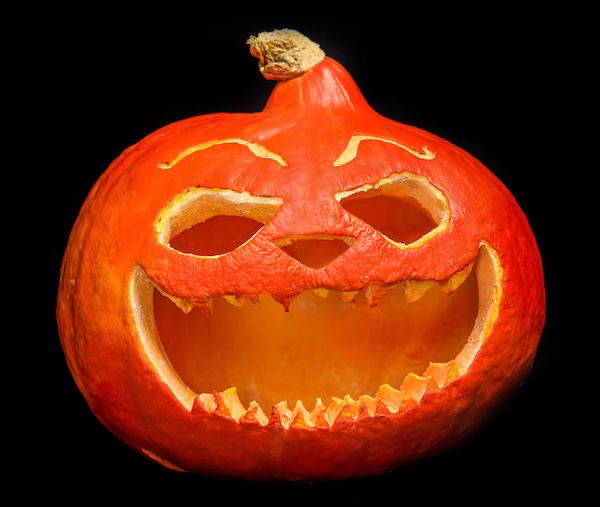Sick of hearing about Halloween? Probably.
But, as they say, if you can’t beat ‘em ….
This is a little different from the commercial onslaught, at least.
Here are some interesting word-related facts.
What does Halloween mean?
Halloween is short for ‘All Hallows Evening’ (the poetic form of ‘evening’ is ‘e’en’). In the Christian tradition it’s observed on 31 October, and is the first part of a 3-day period to remember the dead.
The following day, 1 November, is All Saints Day, or All Hallows, a celebratory occasion, in honour of the ‘hallows’ – the ‘holy ones’ – whose souls have reached heaven and live as saints with God.
On 2 November (All Souls Day), the faithful on Earth pray that all those who have died will enter Heaven.
There are plenty of other words and symbols we connect with Halloween, possibly without thinking too much about what they mean.
Words associated with Halloween
Here are just a few:
Devil
The word comes from the Greek word diabolus: dia means ‘separate’ or ‘apart’, and balien, means ‘throw.’
The devil is the force that ‘divides’ humanity and throws or pushes us apart.
It was adopted into various European languages, for example: French, diable; Gaelic, diabhal; and Portuguese, diabo.
In some languages, ‘b’ becomes ‘v’: Italian, diavolo; Dutch, duivel; and Danish, djaevel.
In English we have the ‘b’ and ‘v’ forms: ‘devil’ and ‘devilish’ but also ‘diabolical’.
Pumpkin or Jack o’Lantern
The tradition of the lighted pumpkin head comes from an Irish legend that tells of Stingy Jack (‘Jack of the Lantern’), who was welcome neither in Heaven nor in Hell.
He roams the Earth forever, with a lantern made from a hollowed out pumpkin, containing a glowing ember from Hell.
You can read the story here.
Spooky
You know what it means but have you ever wondered where the word comes from?
It’s American English, dating back to the beginning of the 19th century.
It comes from various, much older words meaning ‘ghost’ or ‘apparition’: spjok (Norwegian), spuk (German) and spoocke (Dutch).
In English (via French), we have the related word ‘spectre’ from the ancient Latin spectrum, also meaning ‘apparition’.
Haunted
The origins of this word aren’t sinister at all. They go back to the old French word hanter, which just means ‘to visit regularly’.
We still keep this meaning in English, when we say ‘It was one of my regular haunts’.
Obviously, though, the ‘spooky’ meaning applies when a place is ‘visited regularly by ghosts’. This meaning of ‘haunted’ has taken over.
Why is Halloween on 31 October?
As with many religious festivals, the date was borrowed from a similar pagan event.
Halloween evolved from the much older Celtic festival, Samhain. It marked the change of the seasons and a time when the barriers between the worlds of the living and the dead were at their weakest, making interactions with the dead more likely.
This is the origin of Halloween’s association with ghosts, ghouls, skeletons (and, yes, even zombies), as well as graves and tombstones, with their spiders, bats and cobwebs.
The early Christian Church had days to commemorate the dead but they moved the dates around during several centuries and eventually fixed on 1 November, possibly to ‘Christianise’ the existing pagan festivals (as they often did).
In our time, the secular Halloween ‘trick or treat’ celebration is much more familiar, thanks to US-led marketing.
Absolutely any characters that are ‘spooky’ or ‘devilish’ (and plenty that aren’t) will do for the decorations and fancy dress rituals of the day.




